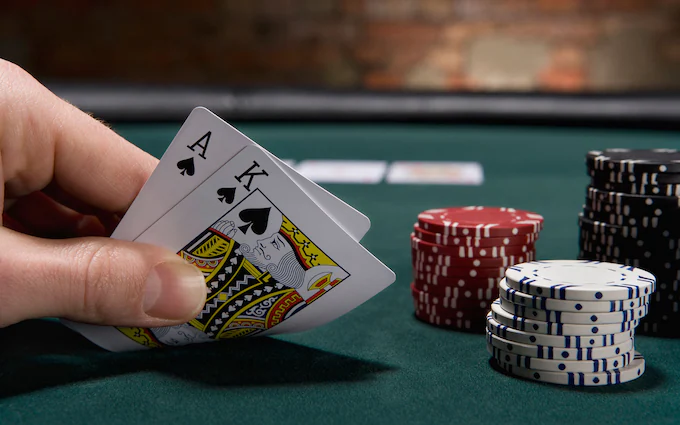Poker can be daunting to beginners, with its complex rules often being dauntingly complex and intimidating! Don’t be intimidated – soon you will become an adept player and will soon progress from casual recreational play on top online poker sites to competing at competitive tables!
This article will introduce the basics of poker strategy so that you can start winning real cash! Whether playing cash games or tournaments, these strategies will help improve your performance and boost your performance.
Rules
Poker requires strategy and discipline in equal measures; to be successful at this game you must minimize losses with poor hands while taking full advantage of any winning hands you do have.
Practice is key if you want to learn poker, whether that means at home or online. Practice can include small games with friends and online.
Beginners may benefit from playing with others who are also just learning the rules. Doing this will enable them to create a routine while giving honest feedback from peers.
Read poker books and forums to expand your understanding of the game, but keep in mind that having all this strategic knowledge doesn’t guarantee success.
Variations
Poker is an immensely popular card game that can be enjoyed in multiple ways. From full-ring to less than 10-person tournaments, players of any skill can join this classic pastime and compete against one another for victory.
Although Texas Hold’em remains the most widely played variant of poker, other versions exist that may require greater skill to learn than its more widely practiced predecessor.
Badugi is a form of poker which utilizes a high-ranking system to determine which hand is considered the best one. While this makes the game slightly more challenging than Omaha Hi, Badugi can still be enjoyable and engaging!
Pineapple poker is another lesser-known form, yet easily learned and suitable for play in select online poker rooms and large tournament series.
HORSE (Holdem, Omaha, Razz Stud and Eight-or-Better) is an acronym combining five variations of poker (Holdem, Omaha, Razz Stud and Eight-or-Better). While learning all five is more complex than learning each one individually, it can still be fun and worthwhile giving it a go!
Betting intervals
Betting intervals are a critical element of playing poker. Their purpose is to both minimize losses with poor hands while increasing wins with strong ones.
When betting or raising, players must place an initial contribution into the pot known as an “ante.” Other players must then either call, raise, or fold (drop out ).
Betting is an integral component of poker, and can have some unexpected side effects. If all the players in a hand check at once when seeing the flop, for example, this information could allow you to narrow down their possible hands – an effective tactic when starting out playing poker! Using it alongside other strategies may prove even more useful; just be mindful of how often it occurs until you learn more!
Bluffing
Bluffing is an integral component of poker strategy. It allows you to capture the attention of opponents and convince them you have a powerful hand, convincing them of this fact through deceitful acts or gestures.
Bluffing can also help increase your odds of victory, and there may be times when this becomes easier than others.
As soon as two or three opponents remain, plan your bluffs accordingly. If you attempt a bluff when more players remain, chances are no one will fold and you could end up losing the pot altogether.
Bluff when you have an impressive card (such as a straight or flush) that no other players possess and no pair exists – this makes bluffing with weaker hands much harder and potentially puts you in position to win the pot.


